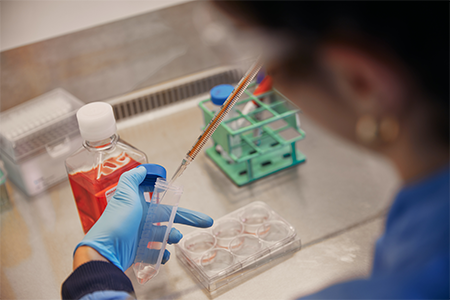Applications to our PhD programme for funded entry in October 2025 via our student competition is now closed. If you have your own funding and would like to do a PhD at the Dunn School, find out more on how to apply in other ways to do a PhD at the Dunn School.
The Application Process

Step 1: Approach potential supervisors
You don’t have to contact a potential supervisor before applying, but we strongly encourage you to do so. Available projects and supervisors are advertised on this page. You can explore the various research groups in the Dunn School, and approach a potential supervisor if you are interested in their research. You can select up to two supervisors/projects when you submit your application. Please note that each supervisor can only take one student per year through our PhD funded programme.
Step 2: Submit your application online
Applications to our PhD programme have to be made online via this link.
We encourage students to make a college choice. We have a strong association with Lincoln and Reuben Colleges, although you may choose any college you wish that accepts our students. If you are applying after the March deadline please contact us first so that we can help you find a college that still has places available.
A research proposal is not required and you do not need to provide a Studentship reference code.
Step 3: Interview
All applicants are initially screened and ranked by a panel of assessors. The most highly ranked applicants will be invited for interview and we will contact you with more details about this if you are selected. Interviews normally take place in January.
If you do not require funding from us, the application process is similar but please read the ‘Self-funded students’ section on our page about other ways to do a PhD in the Dunn School.
Application requirements
Applications requirements for our PhD programme can be found at DPhil in Molecular Cell Biology in Health and Disease | University of Oxford
About our Course
Doing a DPhil in Molecular Cell Biology in Health and Disease at the Dunn School is the best way to start your career.
Available PhD Projects
Over 30 groups work at the Dunn School to uncover the molecular and cellular mechanisms underlying disease. Discover which research groups are accepting students for our next round of applications.
FAQs
On this page you can find answers to the most commonly asked questions about doing a PhD at the Dunn School.